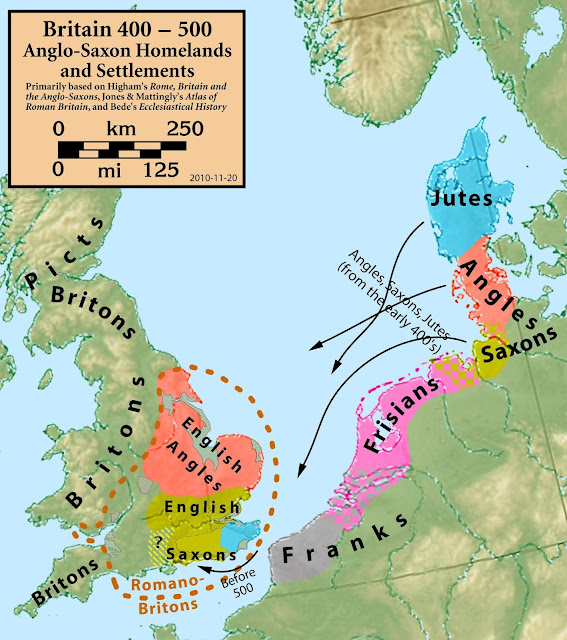WHAT HAPPENED TO ENGLISH?
Behind every noticeable change, lots of moves are hidden away from the public eyes. To really understand the journey of a language, we must voyage back in history to grasp the land where it came from, those who started using it as a tool of communication, and all that transpired where it originated. English Language like any other, had roots. And we will be wise to seek it, see it, and understand what has caused it to be subjected to the winds of change over time.
It all started when Vortigern, a ruler of Britons, invited the war-loving, strong Germanic people who were then known as Anglo-Saxons to come to Britain to help defend his kingdom against the marauding invasion by the Picts and Scotti, who occupied the now Scotland. Anglo-Saxons were the descendants of three different Germanic people: the Angles, Saxons, and Jutes. These people of each of the Anglo-Saxon kingdoms spoke distinctive dialects, which evolved over time and together became known as the Old English. We can see this so much relativity of English language with Frisian, Low German which is spoken in Northern Germany, the ancestral home of the men who came to settle in Britain in 800AD. This was indeed the beginning of English Language.
When these Anglo-Saxons had succeeded in helping Vortigern push back the raging forces threatening to destroy his Kingdom over many periods of times, the King encouraged their leaders to stay close to him, and he gave those lots of lands for settling to these men instead of going back to their homeland. Their settlement in what is now England laid the foundation for the later Kingdoms of Essex, Sussex, and Wessex (Saxons); East Anglia, Middle Anglia, Mercia, and Northumbria (Angles); and Kent (Jutes).
In October 1066, English will be forced to evolve to suit the new men who were passed the baton to carry it further into time. From across the English Channel came the Normans to invade the whole of England as they conquered, carrying with them a new language, French! To rule their newly conquered subjects, they had to mix the foreign language they brought with that of the Inhabitants for their newly governed to understand. Hence as a Linguist, one would notice that all the words ending with ‘ion’, ‘ary’, ‘ance’, ‘ant’, ‘ent’ and ‘ence’ can also be found in French but with a little difference in pronunciation. English was forced to adopt and become mixed with French when its people were conquered by the later.
By 1611, during the time of King James when that great command was given by this King of whole Britain for the Bible to be published, English had become so refined and had borrowed so many from the surrounding Scots, Welsh and Vikings and had another look totally from the ones spoken during the Norman invasion. This was the time great William Shakespeare lived and reading his works, one would see how much this language had been developed.
To those of us now in the 21st century, reading the King’s English can seem a bit laborious and hard to comprehend quickly as the Queen’s English which we currently speak. This is nothing but a testament to the fact that this same language, as the wheels of time rolled by, had gone to many strange lands, tasted many diverse waters, and had adopted words from many axis of the World as Englishmen tried expanding the glorious British Empire. One can be very sure that if he should travel back in time and tried communicating in Queen’s English with the men who lived in 1066, during the Norman invasion, they will definitely view what is spoken now as a strange but somewhat related with what they speak. And it is sure that in the next 1,000 years English which we currently speak will likely change; there is no single doubt about that.
To finally conclude on what happened to English, we must remember the wise words of a great man who said, “A language that has travelled a lot or has been conquered by many is a language that will surely evolve.”





Comments
Post a Comment